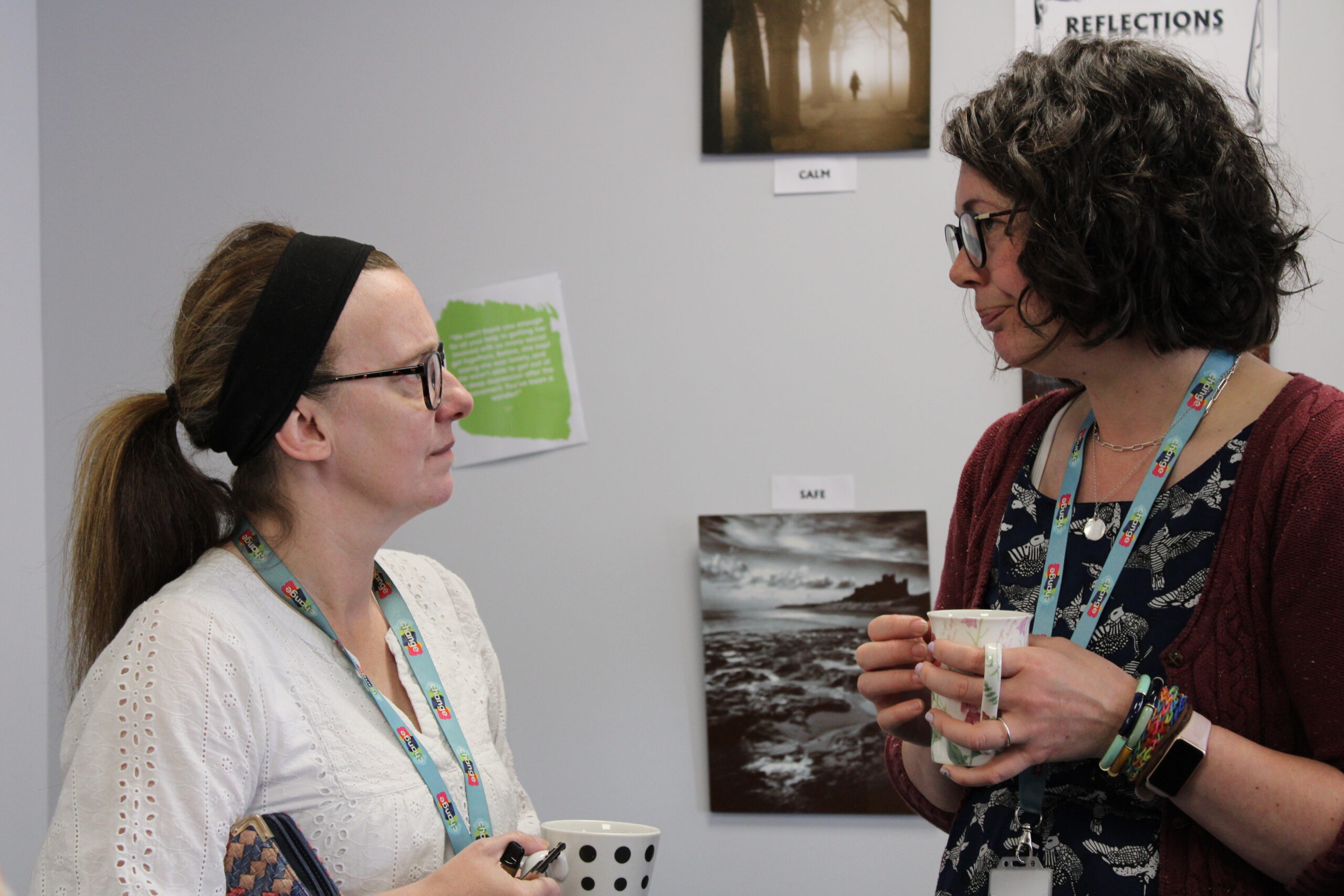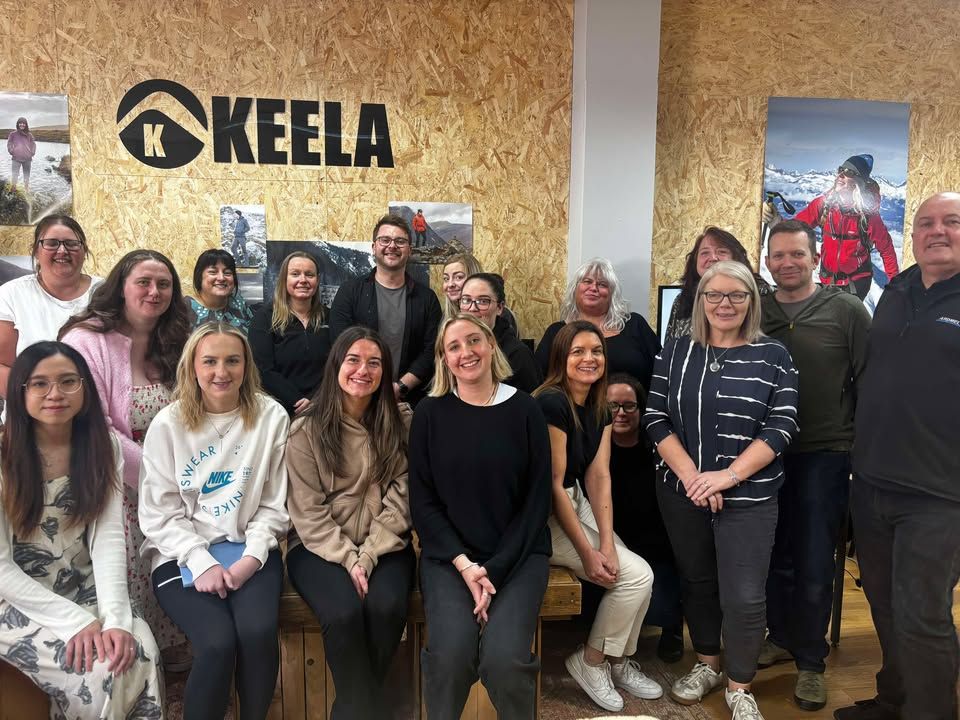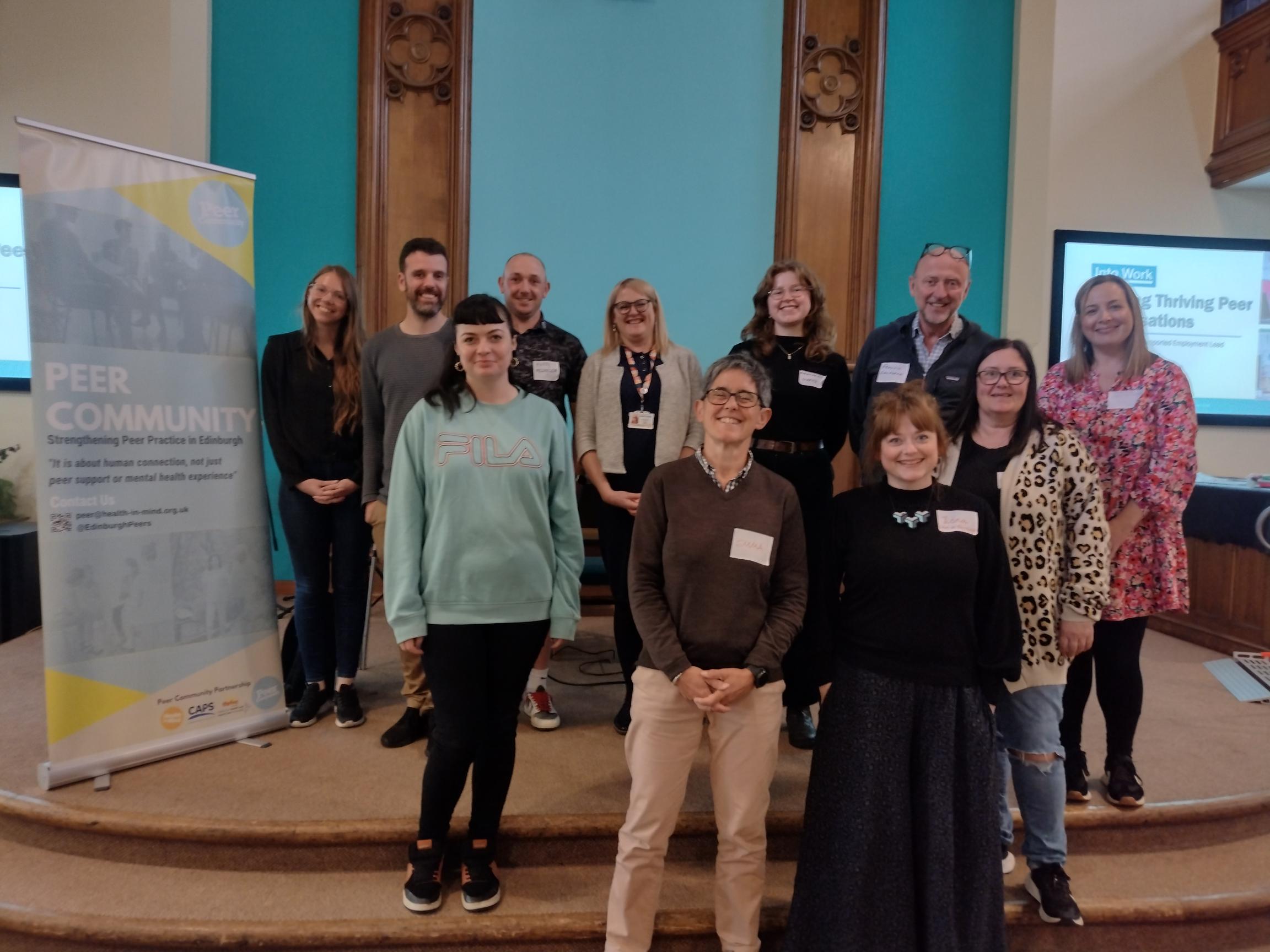Social prescribing explained: Linking people to the right support
Community Link Workers share how social prescribing connects people with support beyond GP surgeries, helping to improve mental health and social wellbeing.

When people visit their GP with concerns about their mental health, social isolation, financial difficulties or long-term health conditions, the solution isn’t always medical. Many of the issues affecting wellbeing are social-related, requiring practical support, meaningful connections and access to community resources. This is where social prescribing comes in.
Social prescribing is a non-medical approach to improving health and wellbeing. It connects people with community and peer support groups, activities and services that provide the support they need, whether that’s counselling, financial advice, social groups, physical activity programmes or befriending services.
In the North of Scotland, including Highland, Sutherland, Caithness and the Isle of Skye, Community Link Workers (CLWs) deliver this service through Change Mental Health. They work closely with GP practices to assist people in finding the right help. According to NHS Highland, it is estimated that 20% of people visit their GP with non-medical needs and up to 20% of GPs’ time is spent on issues related to social needs.
By listening to people’s needs and understanding their challenges, Community Links Workers help local community members access services and resources that can improve their mental health and overall wellbeing.
Sarah Howe, a Community Link Worker working in GP practices in Thurso, said:
“Any of us can go through challenging times in our lives and be susceptible to poor mental health. There is no shame in saying ‘I’m struggling here.’
“Talking to a Community Link Worker can help someone to feel listened to, when they may not feel able to talk to anyone close to them or they may not feel they are being heard. It can help them to get out of the hole that they might feel stuck in.”
how social prescribing works
At the heart of social prescribing are Community Link Workers (CLWs), who work closely with GP surgeries to support people in identifying the right non-medical support for their needs. Rather than simply directing individuals to services, CLWs take the time to listen and build trust.
“A phrase we often hear as CLWs is ‘I didn’t know that service or group was available’,“ said Nadine Mackenzie, a Community Link Worker working in GP practices in Inverness. “So often, the solution to many people’s issues is on their doorstep, but they just don’t know what the service does or how it could help them. That’s why collaboration between the CLW service and other services is essential.”
Julia MacMorran, Remote & Rural Senior Community Link Worker, added: “There are so many resources out there available, yet not everyone has access to this information. By working with your Community Link Worker, you can widen your knowledge on available resources and how these can help you.”
Rather than focusing solely on treating symptoms, social prescribing aims to address the root causes of mental and physical health challenges, recognising that health and wellbeing are shaped by wider social circumstances.
“I think it is important to understand the significance of social issues to a person’s wellbeing and that not everything can be solved by a diagnosis or medication,” explained Nadine.
the impact of social prescribing
Social prescribing can be life-changing, helping people regain confidence, access support they didn’t know existed and feel more connected.
Nadine explains why social prescribing is able to create such impact in people’s lives: “Social prescribing opens a pathway to better wellbeing and mental health by assisting people in accessing differing types of support which is readily available within their local community.”
One client had experienced sexual assault. To complicate matters, they were living in a small, rural community where their family had previously been affected by a false accusation of sexual assault, causing conflict and distrust. Elaine Cameron, Remote & Rural Senior Community Link Worker, who worked this client, added: “The client felt that this history would undermine the seriousness of their own experience, leaving them isolated and without anyone to turn to for support.”
To provide a safe and confidential space for support, the social prescriptions in this case were RASASH (Rape & Sexual Abuse Service Highland) and The Spark (counselling service). The client needed someone to talk to, not only about their own assault but also about the impact of the previous family situation.
Receiving support from a Community Link Worker gave them options they hadn’t known existed, such as online counselling, which provided them with the safety and anonymity they needed to access help – often a major barrier to seeking help in small, rural communities.
Another client dealing with severe anxiety and a fear of leaving their home was introduced to a befriending service that offered weekly check-ins. Charlotte Noble, Community Link Worker in Inverness, described how small steps can lead to big changes: “With so many services under pressure and waiting lists increasing, social prescribing helps find a solution. This may be a short-term solution while someone is on a waiting list, but it can make a huge difference in the meantime.”
why social prescribing matters
For many people, the hardest part of seeking help is knowing where to begin. Social prescribing removes this barrier by providing a clear pathway to the right services.
Tanya Pokorniecki, a Community Link Worker working in GP practices in Inverness, explains: “Social prescribing is giving people access to services, groups organisations and support that they didn’t know was available or didn’t know it would help them.”
The benefits of social prescribing extend beyond individuals. It also reduces pressure on GPs by ensuring that social issues are met with social solutions, allowing doctors to focus on clinical needs while Community Link Workers support people in other aspects of their wellbeing.
“The Community Link Worker service has been excellent for GPs. The support given to patients regarding the non-medical support for physical and mental health is incredibly valuable. It helps patients access support that we are either unaware of or would struggle to provide within the limited time available.
“This means we can commit more of our time to the elements we are better equipped to support, resulting in improved service to patients and GPs feeling supported.”
Dr Connor Gamble, Tweeddale Medical Practice, Fort William.
In some cases, social prescribing addresses the social issues underlying physical symptoms. Julia highlighted how these connections relieve pressure on GP services and tackle the root causes of health concerns.
“I think social prescribing is alleviating the pressures associated with GPs. People will visit their GP with physical symptoms often linked to social problems.
“For example, an exacerbation in their arthritis pain could be because the individual isn’t able to afford to heat their home due to debts, not receiving the correct benefits or being unaware of available resources. The cold is known to make arthritis pain worse, so although the individual has seen their GP due to physical pain, the underlying cause was a social issue rather than a physical ailment that the GP can assist with.”
Social prescribing is not just an ‘extra’ service; it’s a fundamental shift in how we approach wellbeing, looking beyond clinical interventions to focus on social solutions. As more people learn about social prescribing and more GPs integrate it into their services, it will continue to play a crucial role in supporting mental health, reducing isolation and improving overall wellbeing of people across Scotland.
about Community Link Worker Service in Highlands and North Scotland
Change Mental Health has been delivering the Community Link Worker service, commissioned and funded by NHS Highland, since 2021. The service saw a major expansion in July 2024, more than doubling its reach from 29 to 62 GP practices, significantly increasing its impact across the Highlands.
By working closely with local charities, healthcare teams and social services, CLWs ensure that people in some of the most rural areas of Scotland receive timely support matched to their specific needs. The ongoing expansion of the service reflects the growing demand for social prescribing and person-centred support in the Highlands.
support
Our Advice and Support Service is open Monday to Friday, 10am to 4pm (closed for lunch between 12.30pm and 1.30pm), where advisers can signpost you to local support that most fits your needs, including our Change Mental Health services. We offer initial advice on money worries and help to deal with emergencies.
Contact 0808 8010 515, email us at advice@changemh.org or fill out the enquiry form on the Advice and Support Service page.





